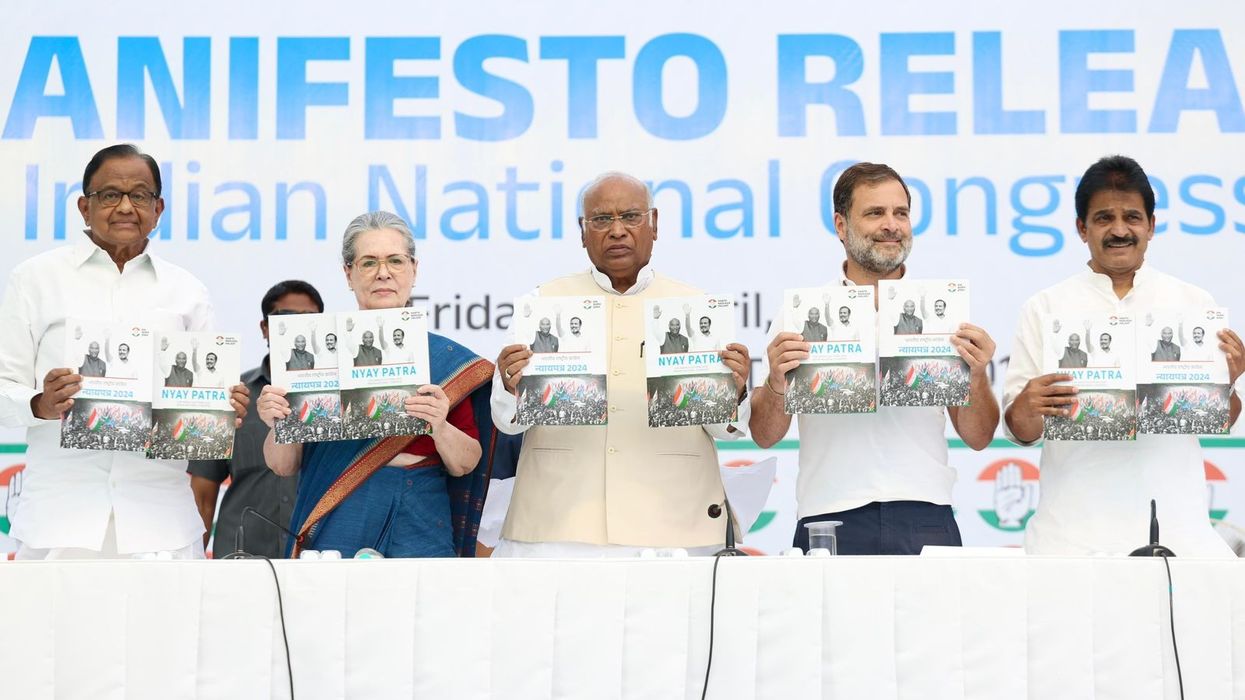The Indian National Congress unveiled its manifesto on Thursday for the upcoming Lok Sabha elections, outlining a slew of promises aimed at addressing various socio-economic issues across the country.
Titled 'Nyay Patra', the manifesto emphasizes five key pillars of justice and 25 guarantees and was released at the All India Congress Committee (AICC) headquarters in the presence of Congress president Mallikarjun Kharge and former party chiefs Sonia Gandhi and Rahul Gandhi.
One of the major highlights is Congress's commitment to lifting the 50% cap on reservations for Scheduled Castes (SCs), Scheduled Tribes (STs), and Other Backward Classes (OBCs).
Moreover, the party pledges to ensure a legal guarantee for Minimum Support Prices (MSP), a critical issue concerning farmers' welfare.
Right to apprenticeship
Another significant promise is the introduction of a 'right to apprenticeship' act, which would provide one-year apprenticeships to diploma holders or graduates below the age of 25.
This initiative seeks to bridge the gap between theoretical education and practical skills, enhancing employability prospects for the youth.
In addition to these commitments, Congress vows to implement a 10% quota in jobs and educational institutions for economically weaker sections (EWS) across all castes and communities.
The manifesto also addresses regional concerns, promising full statehood to Jammu and Kashmir, special status to Andhra Pradesh, and amendments to the governance structure of the National Capital Territory of Delhi.
Furthermore, Congress plans to address healthcare challenges by adopting the Rajasthan model of cashless insurance, aiming to provide universal healthcare coverage across India.
Additionally, the party pledges to fill nearly 30 lakh vacancies in government posts at various levels, addressing issues of unemployment and underemployment.
Promise for LGBTQ couples
The Congress party also promised to bring a law recognising civil unions between couples belonging to the LGBTQIA+ community if it was voted to power.
"After wide consultation, the party will bring a law to recognise civil unions between couples belonging to the LGBTQIA+ community," the manifesto read.
A civil union is a legal relationship between two people that provides legal protections. A civil union is not a marriage. A civil union does not have the same recognition in personal law as marriage.
Right to privacy
The manifesto also talks about the importance of privacy rights, promising to review laws that interfere with the right to privacy and enact suitable amendments.
Furthermore, Congress rejects the 'one nation, one election' proposal, advocating for elections to be held in accordance with constitutional principles and democratic traditions.
Party leaders, including Mallikarjun Kharge and Rahul Gandhi, urged voters to consider the party's agenda, which focuses on addressing the needs of all sections of society.
The general elections in India will be held in seven phases from April 19 to June 1, and the counting of votes will be done on June 4.
Nearly a billion people will be eligible to vote in the elections where Prime Minister Narendra Modi will seek a record-equalling third straight term.





